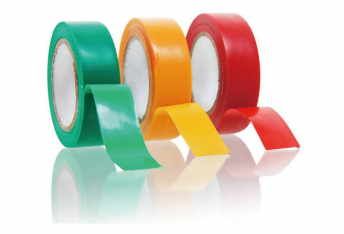The Versatility and Utility of Rubber Mastic Tape
Rubber mastic tape is a specialized adhesive tape known for its outstanding performance in various industrial and DIY applications. With its unique properties, this tape has become an indispensable tool in the toolkit of professionals and hobbyists alike. This article explores the characteristics, applications, and advantages of rubber mastic tape, emphasizing why it is a go-to solution for many tasks.
What is Rubber Mastic Tape?
Rubber mastic tape is made from a blend of rubber and mastic compounds, which give it a sticky surface and excellent insulation properties. This tape is often characterized by its thick, pliable nature, allowing it to conform well to irregular surfaces. It is typically used for wrapping, insulating, and sealing, making it suitable for a variety of environments, including electrical systems, plumbing, and automotive applications.
Key Properties
One of the standout features of rubber mastic tape is its weather resistance. It can perform well under extreme conditions, resisting moisture, UV rays, and temperature fluctuations. This durability makes it ideal for outdoor use, where it can withstand rain, snow, and sun exposure without losing its adhesive properties.
Another critical aspect of rubber mastic tape is its excellent electrical insulation properties. This tape can provide high dielectric strength, making it a preferred choice for electrical repairs and installations. It is also resistant to chemicals, oils, and solvents, further extending its applicability in various industrial settings.
Applications
Rubber mastic tape has a wide range of applications across multiple sectors
1. Electrical Insulation Often used in electrical maintenance, rubber mastic tape can insulate wires and connections, preventing short circuits and electrical failures. Its high resistance to electricity makes it a reliable choice for electricians.
2. Sealing and Weatherproofing In construction and plumbing, rubber mastic tape is commonly applied to seal joints, fittings, and cracks. Its waterproof nature prevents leaks, ensuring that systems operate efficiently without unexpected failures.
rubber mastic tape

3. Automotive Uses Mechanics often utilize rubber mastic tape for various repairs and maintenance tasks. It is used to insulate wires, seal hoses, and protect sensitive components from moisture and dirt.
4. HVAC Applications In heating, ventilation, and air conditioning systems, rubber mastic tape can be employed to seal ductwork, preventing air leaks and enhancing system efficiency.
5. DIY Projects For home improvement enthusiasts, rubber mastic tape is an essential item. Its ease of use and strong adhesion make it suitable for numerous projects, from crafting to quick household fixes.
Advantages of Rubber Mastic Tape
The advantages of rubber mastic tape are numerous
- Easy Application Rubber mastic tape is user-friendly and can be applied easily by hand without the need for additional tools. This simplicity makes it an excellent choice for quick repairs or temporary solutions.
- Pliable and Conformable Its flexibility allows the tape to adhere to uneven surfaces, ensuring a tight seal and reliable insulation.
- Durable and Long-lasting With its resistance to environmental factors, rubber mastic tape can provide lasting protection, reducing the need for frequent replacements.
- Non-Toxic Most rubber mastic tapes are non-toxic, making them safe for use in various settings, including homes and schools.
Conclusion
In conclusion, rubber mastic tape is a versatile and effective solution for a multitude of tasks across different applications. Its unique properties make it suitable for both professional and DIY projects. Whether you are insulating electrical connections, sealing plumbing joints, or undertaking home improvement projects, rubber mastic tape offers reliability, durability, and ease of use. Embracing the benefits of this tape can lead to more efficient workflows, longer-lasting repairs, and ultimately, a greater peace of mind in various endeavors. Its continuing popularity in the market is a testament to its utility and effectiveness in meeting the demands of modern applications.
-
Versatility with Tape Electrical InsulationNewsJun.09,2025
-
Floor Marking Tapes For WareHouseNewsJun.09,2025
-
Enhance Your Projects with PVC Electrical TapesNewsJun.09,2025
-
Enhance Your Projects with Automotive Wiring Harness TapeNewsJun.09,2025
-
Enhance Your Automotive Fabric TapesNewsJun.09,2025
-
Enhance Electrical Projects with Cambric TapeNewsJun.09,2025
